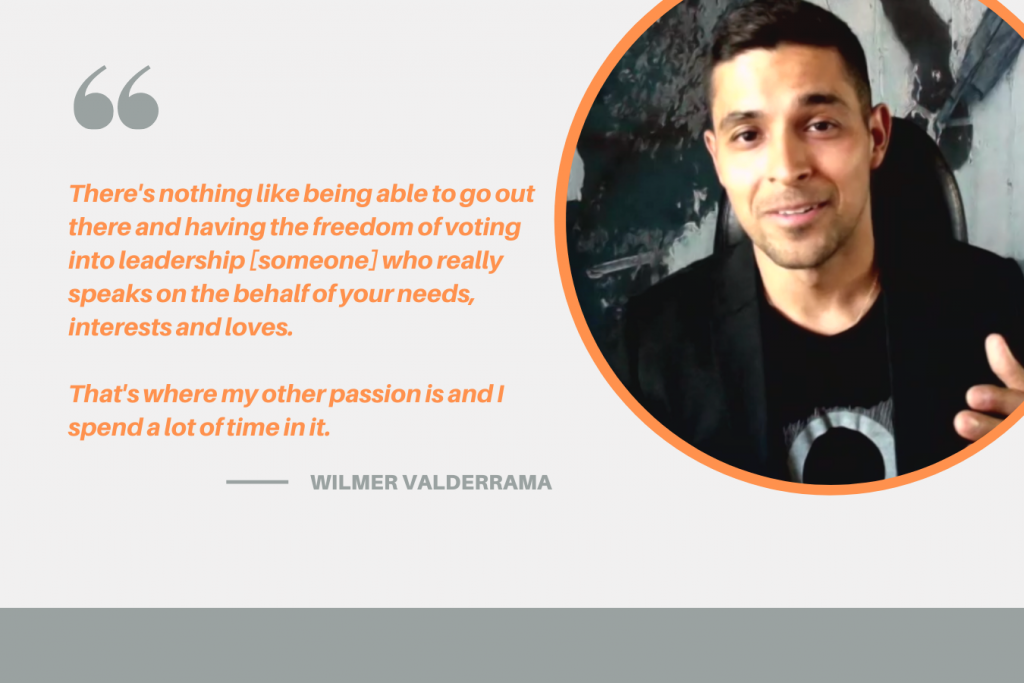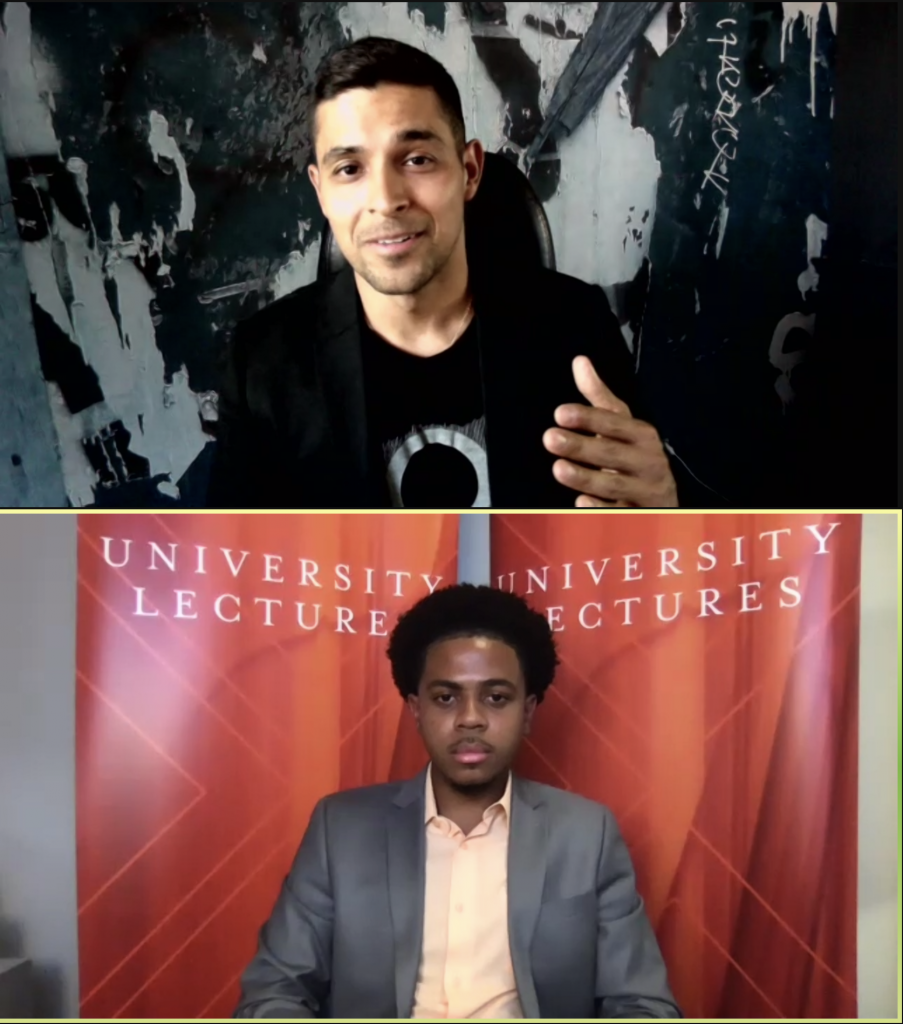Actor Wilmer Valderrama emphasizes importance of representation on-screen
Actor Wilmer Valderrama emphasizes importance of representation on-screen

Wilmer Valderrama, the first guest in this year’s Syracuse University’s lecture series, spoke Wednesday night on the importance of both personal and community engagement in relation to representation in the media. An actor, producer and activist, Valderrama is most recognized for his roles in That 70’s Show and NCIS and for voicing the titular character Handy Manny.
Valderrama said he was first motivated to pursue acting because he “had the audacity to think that I could be great.”
But when COVID-19 put Hollywood on pause, he was forced to find other things to do in his free time outside of his usual activities. Pre-coronavirus, Valderrama was either on set, traveling to a set, or completing volunteer work like registering people for the U.S. Census and registering people to vote. Quarantine brought with it a concept completely foreign to Valderrama: inactivity.
Valderrama said it became vital for him to find something to do with his time. He came up with something he calls “my hour a day,” which has grown into a popular hashtag on social media. The concept stresses the importance of self-care.
“It’s good to do what you love, but it’s also really important to do something every day that you really like doing,” Valderrama said. For the actor and former athlete, physical activity became his therapeutic reprieve.

“It’s been fun and it’s built major accountability when it comes to, you know, who I am and how I love myself,” he said.
Though acting and producing keeps Valderrama on a tight schedule, in his free time he enjoys giving back to his community. He stressed that those things are not mutually exclusive — you can be an entertainer and also be opinionated and engaged in social causes and the political process. Away from the camera, Valderrama works with Voto Latino, an organization dedicated to registering and engaging Latino communities in the political process.
“There’s nothing like being able to go out there and having the freedom of voting into leadership [someone] who really speaks on the behalf of your needs, interests and loves,” Valderrama said. “That’s what my other passion is, and I spend a lot of time on it.”
The actor said he perceives voting not only as an obligation but as a celebration of heritage and the labors of those who sacrificed for suffrage.
“So much has been fought for to afford you the ability to show up and cast your vote on behalf of your family,” Valderrama said. “I mean, shame on you if you don’t see that as an opportunity to pay tribute to the sacrifice that your parents made to bring you here to get the education that you never had.”
Some have criticized the actor for his political involvement, suggesting that it is not an entertainer’s place. Valderrama shrugs off these critiques and maintains that everyone is welcome in the social and political sphere. Often throughout his career, the actor seized opportunities to blend his passion for acting with his passion for social engagement.
Valderrama said that every role he has ever had was chosen because he saw the potential for positive Latinx representation, something that was all too often lacking in Hollywood.
To that end, the actor explained how two of his most successful projects, MTV’s hit show Yo Momma and Nickelodeon’s Handy Manny, were among the most rewarding of his career. The shows stemmed from Valderrama’s discontent with the programming of the day. Right on the heels of his iconic portrayal of Fez on That 70’s Show, Valderrama saw a chance to leverage his platform for good.
“Basically, I used the little star power that I had at the time, and I green-lit a show at MTV, and I said, ‘Hey, I’m going to put all the people that aren’t on television, on television,’” Valderrama said. While the premise of the show was silly enough—Valderrama played host as contestants from around the country exchanged jabs in the form of “yo momma” jokes—the underlying significance of the show was not lost on the actor.
Valderrama understood the show as presenting him with the opportunity to give back, bringing talented black and brown people out of obscurity and into the forefront of MTV.
“There was a lot of raw talent in our hoods and there was a lot of raw talent that [went] undiscovered and that didn’t look like anything that was on television,” he said.





